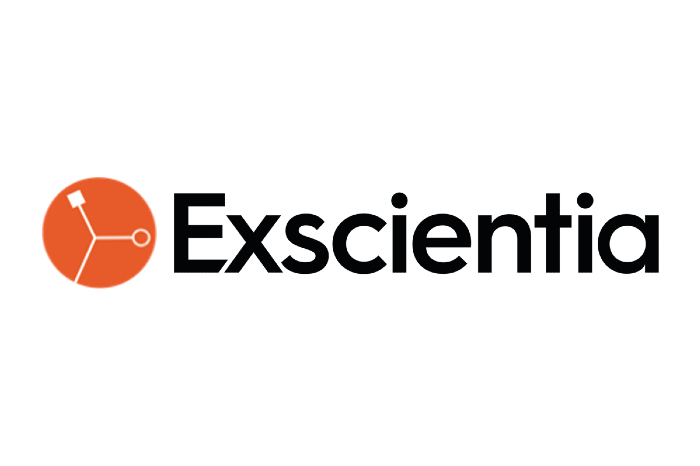
By Ed Miseta, Chief Editor, Clinical Leader
Follow Me On Twitter @EdClinical

In 2022, Bristol Myers Squibb (BMS) announced plans to work with AI developer Owkin to design and optimize cardiovascular drug trials. The partnership will allow BMS to use machine learning to enhance clinical trial design and execution, including optimized endpoint definitions, patient subgroup identification, and treatment effect estimation.
In this Q&A, Venkat Sethuraman, SVP, Global Biometrics and Data Sciences at BMS, discusses the partnership, the use of AI in cardiovascular trials, and how the technology will create a better patient experience.
Ed Miseta: A collaboration was recently announced between Bristol Myers Squibb and Owkin to apply AI to study design and reduce trial costs. Can you explain how BMS is using AI in its clinical trials?

Venkat Sethuraman: In general, BMS is accelerating clinical trials with diverse data and virtual technology to enhance study speed, quality, and scale. Our focus areas for the use of Artificial Intelligence (AI) in clinical trials include:
- Building a high-powered computing environment where we can simulate clinical trials without actually running some of them, leveraging existing data sets;
- Running digitally enabled clinical trials, leveraging real-world data to accelerate our clinical programs and
- Using robotics to automate processes, from protocol design to reporting to regulatory authorities.
Our unique collaboration model with Owkin will apply AI to optimize design and reduce the cost of clinical trials, initially in cardiovascular disease. Owkin will use AI to enhance our trials, both in their design and execution, using AI to optimize endpoint definitions, patient subgroups and treatment effect estimation with covariate adjustment and external control arms. In the future, this methodology could be used to avoid having placebo arms in some trials and make trials for rare diseases more efficient.
This approach capitalizes on the increasing use of diverse real-world data sources, thought leader expertise and AI powered computational models applied towards virtual clinical trials – this is highly complementary to our existing investments in digital drug discovery and development and our belief that digital innovation and enablement are foundational to achieving our mission of developing, discovering, and delivering innovative medicines that help patients prevail over serious diseases.
Miseta: How is the use of AI improving cardiovascular trials at BMS?
Sethuraman: Cardiovascular disease is an area of significant unmet need, and where we have the opportunity to use technology in new ways to further accelerate potential breakthroughs for patients in need. Owkin’s proprietary AI models are trained without having to pool data which leads to accelerated clinical data model development with diverse data. In our view, this has the potential to accelerate our clinical development programs in cardiovascular disease.
Miseta: Will the technology impact sites and patients, making their trial experience better?
Sethuraman: While this particular initiative does not directly impact patients in terms of the logistics of their clinical trial experience, our unique collaboration model will apply AI to optimize design and reduce the cost of these clinical trials. The way we accelerate clinical trials with new data and virtual technology to enhance study speed, quality, and scale is two-fold, with a decentralized approach and a digitally-accelerated approach.
Decentralized approaches do aim to make the trial experience better and more accessible for a wider range of patients. In this space, we are working with startups to build patient engagement apps that can directly communicate with the investigator sites, and thereby, increase our engagement of our patients and our clinical studies.
Decentralized clinical trials shift the focus away from traditional clinical trial sites to allow patient data to be collected without patients traveling to hospitals, making it easier on patients, their families and caregivers. From an operations perspective, decentralized clinical trials often are more streamlined and data collection more efficient. At each step of a decentralized clinical trials, we are focused on the patient experience—screening and early diagnosis, to access to quality care and innovative medicines—and ensuring the patient voice is heard.
In addition to our Owkin partnership in the way of digitally accelerated trials, we are closely partnering with real-world data (RWD) partners to develop new models for clinical development leveraging data and technology where all data is captured electronically within the EHR/EMR systems.
Through automation and robotic process automation, we are also developing a Digital Protocol Solution (DPS) that is digitally available for feasibility, trial operations and clinical trial reporting. This has potential to accelerate our trial conduct and reporting to regulators worldwide.
Miseta: Will the use of AI help reduce trial failures and reduce the cost of drug development?
Sethuraman: That is ultimately our goal. Our data science mission is to uncover hidden patterns and insights from complex data using advanced machine learning techniques to develop faster, safer, and more effective drugs for our patients.
We collect this complex data from a number of different sources. First, we have our clinical trials, where we gather information on the safety and efficacy of our medicines, as well as patients’ scans and images and any biomarkers, or molecules that identify abnormal processes, they may have. Second, we also partner with companies to secure access to large real-world datasets, looking at similar information for patients receiving medicines in clinical practice.
When it comes to design, we are developing industry leading virtual simulation platforms that can predict and optimize likelihood of trial success. We are using the compilation of all this data and applying AI and machine learning with innovative consent technology to better understand trends and signals, potentially better helping us predict how patients will respond to specific treatments.
Miseta: How will the use of AI in clinical trials help get drugs to patients faster?
Sethuraman: We are always looking for ways to reduce the overall cycle times that we have in drug development. The time it takes to get a drug to market varies depending upon the therapeutic area. Generally speaking, even if we are able to replace 25% of our standard of care in a trial with an AI modelling effort, it reduces our costs to recruit those patients, and in terms of timelines of the trial, this could easily be reduced by 10% to 15%. That’s not the exact milestone that we have with Owkin, but a general framework.
Miseta: What challenges should companies expect to face when bringing AI into clinical trials?
Sethuraman: I can’t speak to the experience of other companies, but we recognize there is tremendous innovation happening all around us and have created an R&D environment that channels inspiration into exploration.
From a data perspective, there is tremendous need and effort required to govern with the right level of access protecting privacy. In addition, it will be important to ensure diversity of data so that the models that are built are generalizable. From a digital perspective, one particular challenge is understanding how capabilities built internally at a company will be able to scale within healthcare systems globally.
As AI becomes a bigger piece of clinical trials in the future, strategic partnerships will be an important consideration to address these challenges.
Miseta: What will these partnerships look like?
Sethuraman: At BMS, we experiment, test, and learn through digital innovation initiatives with the goal of achieving scale as quickly and sustainably as possible to develop better therapeutic molecules for the patient subpopulations that will benefit most. As mentioned, we are aiming to complement our own innovation capabilities with those of external partners. We are also making investments in digital innovation and enablement to advance early research, development, manufacturing, commercialization, and our enabling functions.
Miseta: How do you believe the use of AI in trials will change over the coming years?
Sethuraman: The tech industry has the opportunity to solve for some of the greatest challenges in healthcare. Importantly, we are always thinking about how tech can help us incorporate patient evidence and data throughout the drug development process.
While we can’t predict the ways in which this process will change, we have always and will continue to make investments in digital innovation and enablement because they are foundational to achieving our mission.


